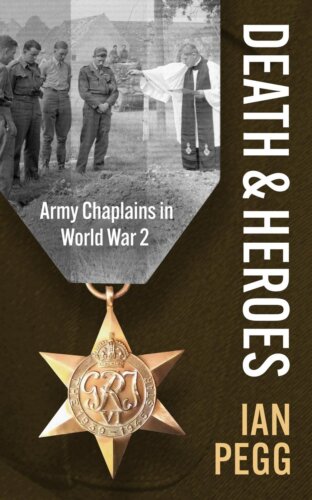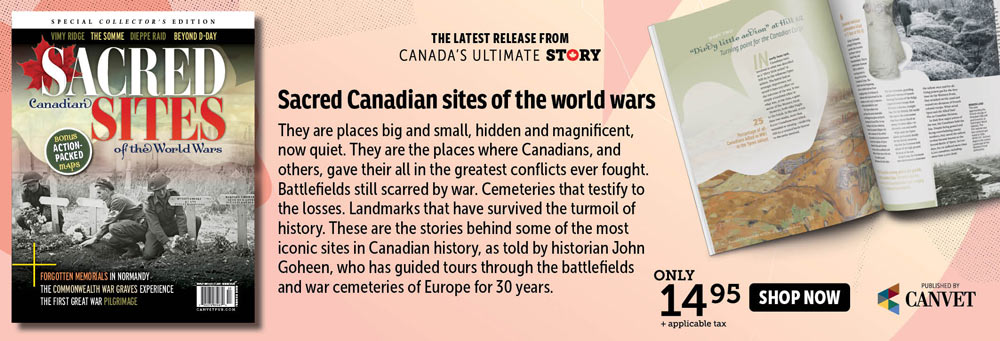
Author Ian Pegg’s book, Death and Heroes: Army Chaplains in World War 2 will be published in summer 2025. [Chiselbury Publishing]
His curiosity for the answer led him to write Death and Heroes: Army Chaplains in World War II, due to be released this summer.
The book is the British civil servant-turned-military historian’s debut. “I wanted to understand who these padres were as people,” noted Pegg. “I like personal stories.”
Those stories form the basis of his narrative, focusing less on the “religious point of view” of chaplains, including 1,253 Canadians, and more on how followers of the faith became moral leaders on the battlefield in many a soldier’s hour of need.
Pegg, who also presents Authors of History, a podcast detailing the writing process of published historians, spoke about his forthcoming book in a Legion Magazine exclusive.

Ian Pegg’s interest in military history was first realized in conversations with his grandfather who served in the Royal Engineers and suffered an injury at Dunkirk in 1940. [Chiselbury Publishing]
There’s a perception that chaplains are only religious people, but I think it goes far deeper than that. They were friends to all, whether you were a private or an officer. They were somebody you could share your worries with, that could get you out of trouble, that would look after the morale of men right on the front line. They were even helping at regimental aid posts, administering morphine, dressings and more. But the story of chaplains sometimes goes further still. There were stories of chaplains who rescued men under fire, constantly putting themselves in danger to assist. They, of course, included John Weir Foote, VC.
About Canadian VC hero John Weir Foote
The only chaplain awarded a Victoria Cross in World War II was a Canadian. Born on May 5, 1904, John Weir Foote was a Presbyterian minister who joined the Canadian Chaplain Service at the start of World War II as an honorary captain. In 1942, he was attached to the Royal Hamilton Light Infantry for the Dieppe Raid. It was an absolute disaster—and the Canadians took the brunt of it.
Foote landed on Aug. 19, 1942, under withering fire before attaching himself to the regimental aid post on the beach. Over the next eight or so hours, he ran across the beach with much disregard for his own safety, pulling the wounded back to the aid post. When he realized that nearby ammunition was on fire, he evacuated the men.
On several occasions, Foote had the opportunity to embark on one of the departing landing crafts, but he gave up his place for others and chose to stay with those left behind. He was captured, and over two days, he was marched more than 30 miles without boots, which he’d previously pulled off to move around the beach easier.
Inside the first prisoner-of-war camp, which had a mixture of Canadians and other Allied troops, it didn’t matter how bad [Foote] was feeling because he still carried on with his duty to the men. Foote said he was simply doing his job, that it was an ordinary thing to do, but neither his men nor myself thought it was ordinary at all.
He survived the war to become a Progressive Conservative member of [Ontario’s Legislative Assembly]. He was very humble throughout his life, but I think he was just an astonishing man.
The same goes for countless chaplains of the Canadian and Commonwealth forces throughout WW II. Their bravery was astonishing. Their sacrifice was astonishing.
About his upcoming book
The book is not about religion. It’s about the personal stories of those chaplains, about who they were and what they did under the most appalling circumstances. This is such an under-told story, so I hope readers come away with recognition for these men who went through the war without any weapons, often armed only with faith and a drive to serve their fellow men on the front lines, no matter their creed. Whether on the battlefield or in prisoner-of-war camps, their bravery, sacrifice and fortitude were an inspiration. And all I hope is my book can shed greater light on it.
This abridged interview has been edited for brevity and clarity.
Advertisement



















